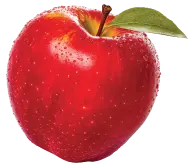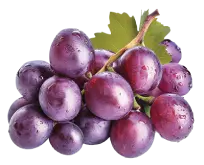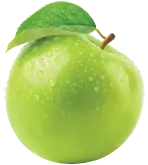
More and more consumers are becoming increasingly concerned with the amount of added sugars in their diet. New FDA guidelines recommend that consumers limit their added sugar intake to 50 grams per day. Added sugars are sugars or syrups that are added to products during processing to enhance sweetness and are not inherent in the food. To reflect this recommendation, food manufacturers will be required to declare the amount of added sugars on Nutrition Facts panels beginning Jan 1, 2020.
Utilizing fruit in food formulations can help with the unique challenge of balancing label-friendliness with taste appeal. Fruit is inherently sweet. Fructose, a sugar abundant in most fruit, is the sweetest of all naturally occurring carbohydrates. It is about 1.2-1.8x sweeter than table sugar (sucrose). That inherent sweetness opens the way for many products to use fruit as a sweetness enhancer while remaining label friendly. The FDA has declared that fruit puree, dried fruit and single strength fruit juice will not contribute to total added sugars.
Fruit purees provide an excellent alternative to using added sugar, either alone or in a blend. Although fruit purees are not as sweet as cane sugar, using fruit purees have other added advantages. Fruits are nutritional powerhouses and have a long held health halo. Using fruit instead of adding “empty calories” can help market products to more health-conscious consumers. In blending, apple and pear puree do not carry much distinctive flavor on their own and can be great carriers for bolder flavors. Banana puree is one of the sweetest but also has the added advantage of a creamy mouthfeel, making it an excellent sugar and dairy alternative. All three purees also take on color very easily, reducing the cost needed for a deeper shade. Consider replacing a portion of added sugar with fruit puree in your next formulation.
Sometimes fruit purees are not the most ideal sugar replacement because of their high moisture content and water activity. When added moisture is not desired, fruit powders might be a better choice. Fruit powders have a moisture around 3% and rehydrate very easily. It’s an excellent tool to control viscosity or water activity. Besides the added functionality, powders can also boost the food’s nutritional profile, giving it more vitamins, minerals and fiber. Consider adding it to a formulation with traditional sugars or using it as a coating to provide sweetness as well as color.
Tree Top’s R&D team can help you with development of your next product innovation. Our research and development department is ready to help find the right inclusion or natural fruit preservative for your application.
Contact our fruit ingredient experts at (800) 367-6571 ext. 1435.




